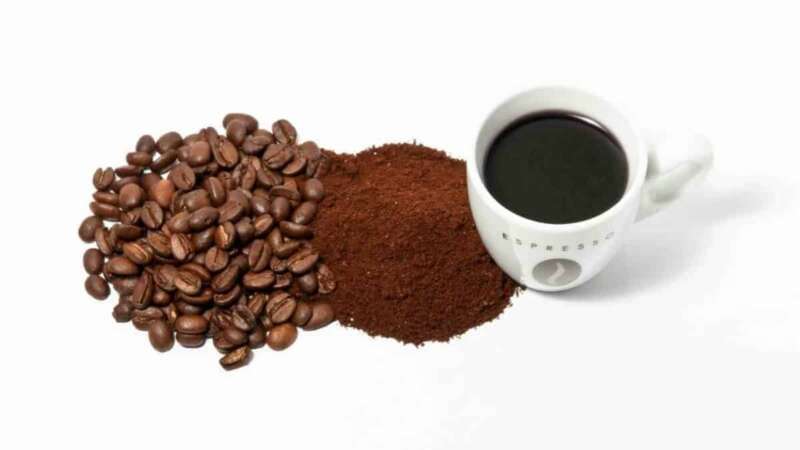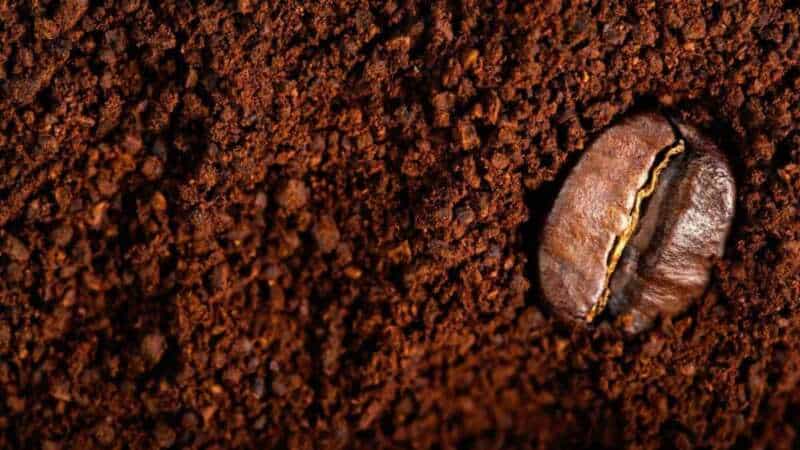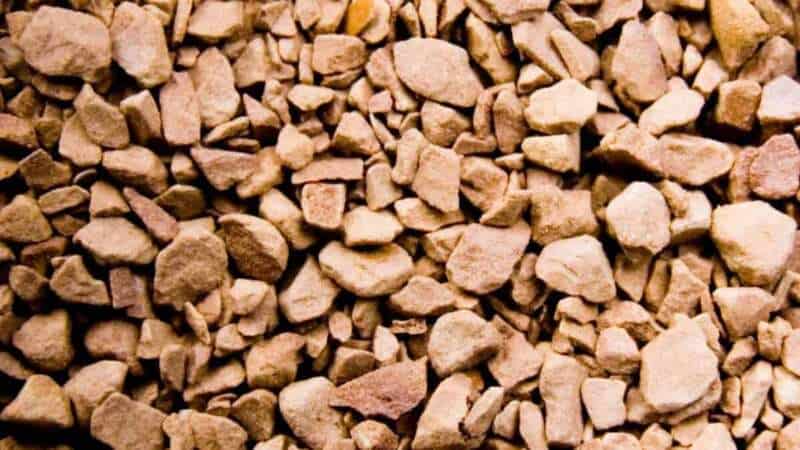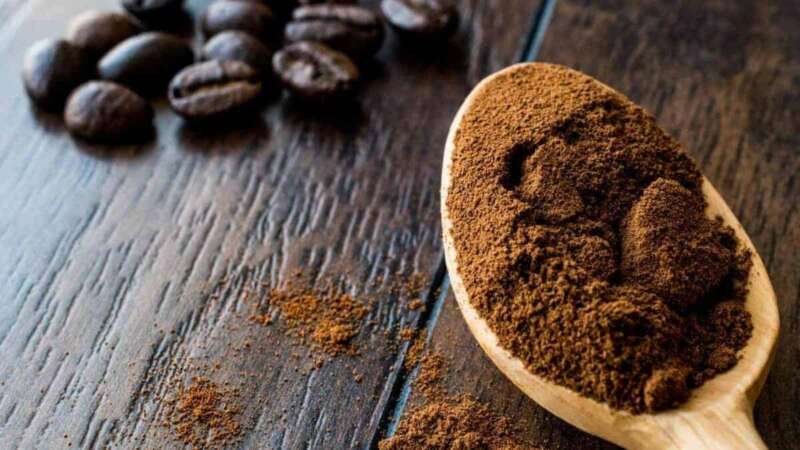Espresso and ground coffee are similar, but there are some important differences in the bean type, size of grounds, and flavors that mean they are usually not interchangeable.
Grounds and espresso powder are not the same, nor are they interchangeable in most recipes. Powder is water-soluble, more like instant coffee than ground, it’s ground into much finer particle size, and it has a completely different flavor profile than most other beans to work better with the concentrating effect of the pressurized espresso brewing process.
In this article, we’re going to look at the differences between the powder and normal coffee, learn why the two are incompatible in recipes, and what you can use instead as a suitable substitution if you can’t get hold of espresso powder.
What Exactly is Espresso Powder?
Espresso powder is not quite the same as regular coffee or instant coffee, and it’s not even the same as fine coffee grounds.
If you’ve ever tried replacing the powder with instant coffee or ground coffee in a recipe, you already know that the two are not comparable in terms of taste.

Espresso powder is made from normal coffee beans, specifically from bean species that work well with the espresso brewing process. To create espresso powder, ground coffee is made into thick coffee, evaporated to form water-soluble coffee crystals, and ground into a very fine powder.
Characteristics of Espresso Powder:
- Made from Specialist Beans
- Sometimes a Blend of Different Beans
- Made from Coffee Crystals (Like Instant Coffee)
- Ground More Finely Than Instant or Ground Coffee
- Dissolves Instantly
- Less Bitter Tones than Normal Coffee
- Enhances Sweet Flavors
Love the taste of espresso? Check out my guide to picking a home espresso maker, where I cover the different types available, the pros and cons of each type, and what to look for when picking a machine for yourself.
Is Espresso Powder just Ground Coffee?
Espresso powder is made from grounds, but it’s not the same as fresh grounds. Espresso powder is made from beans that have specifically been selected to work well with the espresso process, and the powder goes through an additional process to make it water-soluble.
Espresso powder is more similar to instant coffee than freshly ground coffee.

Like instant coffee, the powder is first boiled to create a thick coffee syrup, which is then dried and ground. It’s not just ground beans.
The result of this pre-brewing method is that powder is water-soluble, and much of the bitter taste and gritty texture of regular grounds are removed.
Differences Between Ground Coffee and Espresso Powder
Some of the differences between espresso powder and regular ground coffee include…
Espresso is Made from Coffee Crystals
The biggest difference between grounds and espresso powder is that espresso has been through an industrial process that turns concentrated pre-roasted coffee into a dry water-soluble powder.
Some specialty stores even sell espresso concentrate or espresso syrup as a standalone product.
This is a different process from freshly ground beans and is more similar to the process used to create instant coffee granules.
This gives the instant espresso powder the ability to dissolve instantly in water and removes some of the bitter tones that you would get from regular grounds.

Flavor
Since the espresso brewing process is quite different from drip coffee, the powder is made from beans specially chosen for this brewing method.
Compared to drip brewing, the pressurized espresso brewing method amplifies any strong acidic or bitter flavors in the coffee, so instant espresso powder tends to be milder and less bitter than regular coffee grounds or instant coffee.
Cost
Espresso powder tends to be more expensive than ground beans due to the extra steps required during the manufacturing process.
Although this is the general rule, there are some fresh beans that are even more expensive than espresso powder. A single cup of Kopi Luwak can cost upwards of $80.
Particle Size
The powder is much more finely ground than ground beans. This means the flavors can be extracted more quickly and the powder dissolves more quickly than both grounds and instant coffee.
When instant espresso is used in baking, this helps the powder mix evenly with the other ingredients.
If instant coffee is used instead of espresso powder, the bakers may grind the instant coffee with a mortar and pestle to get the fine texture of espresso.
Espresso Bean Flavor Profile
Espresso beans are specifically selected to have fewer bitter notes than regular coffee. This is because when coffee is put under pressure in the espresso process, any acidity or bitterness is amplified.
The result is a rich, full-bodied coffee that tastes strong, but without the bitter taste of a regular strong black coffee. It’s sometimes described as having a concentrated “coffee” flavor.
Espresso is especially used in baking to bring out and enhance sweet flavors such as chocolate and caramel. (A mocha drink is usually made with espresso)
Ground coffee and instant coffee lack this quality, and can more easily overpower any baking recipe.
For this reason, instant coffee is never used as a 1:1 replacement for instant espresso powder in recipes, but it may be substituted in lower quantities.
Can You Substitute Ground Coffee for Espresso Powder?
Whether you’re baking or making instant coffee, the powder can not usually be substituted for regular grounds, even if you have ground coffee because the physical makeup of espresso powder is completely different from freshly ground beans.
Espresso powder is much finer than regular coffee, and the flavor profile is usually quite different.
Espresso powder is well-known for its ability to enhance sweet flavors, especially in baking. That’s why many chocolate or caramel-based desserts such as coffee jelly include espresso powder.
If you were to substitute this for fresh coffee grounds you would end up with solid grounds left in the finished product, and if you used instant coffee you’d end up with a bitter taste.
Sometimes it’s possible to replace espresso powder with instant coffee instead, but not at a 1:1 ratio. Espresso powder is usually less bitter than instant coffee, so a smaller quantity of instant coffee can be used in place of a larger quantity of espresso.
Is Espresso Powder Just Ground Espresso Beans?
Instant Espresso powder is made from ground coffee beans, but it’s been through an additional process where the beans are boiled into a concentrated coffee, which is then dried and ground.

This allows the powder to be completely water-soluble, unlike freshly ground beans.
Is Espresso Powder The Same As Instant Coffee?
Espresso powder is made using the same process used to make instant coffee, but they differ in taste and in granularity.
Coffee powder is usually more bitter than espresso powder, and espresso powder is usually more finely ground. Both are water-soluble, unlike fresh coffee grounds.
Instant coffee is sometimes suggested as a substitution in recipes, however, the two are not exactly the same.
If you’re using instant coffee in place of espresso powder, it can’t be used in a 1:1 ratio because the instant coffee powder is more bitter.
Depending on the recipe, it may also be necessary to grind the powder with a mortar and pestle.
Conclusion
To sum up, espresso powder is not the same thing as ground or instant coffee, even though they are all made from coffee beans.
Espresso is made from coffee beans that have been specially selected to reduce excess acidity or bitterness since the pressurized espresso brewing process amplifies these flavors. Espresso powder usually can’t be replaced with ground or instant coffee in recipes.
The process for manufacturing espresso powder is similar to how instant coffee is made.
The powder is made from dried concentrated coffee, not from fresh coffee beans. The result is that espresso powder is water-soluble.
In terms of taste, espresso powder is sometimes described as having a strong coffee taste, but without bitterness.
Espresso has a unique ability to enhance sweet flavors without overpowering them with bitterness, hence it’s often used in chocolate or caramel recipes.